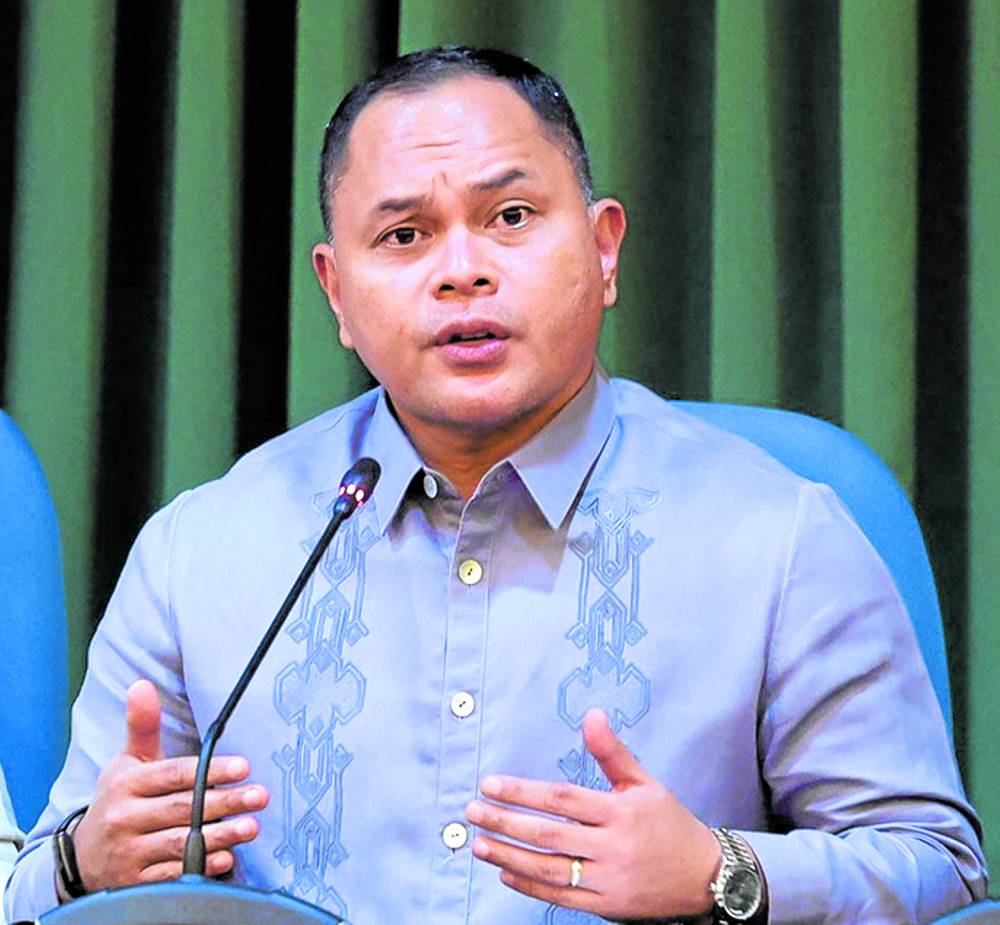
Deputy Speaker David Suarez—Photo from House of Representatives FB page
MANILA — Deputy Speaker David “Jay-jay” Suarez of Quezon on Saturday raised objections to the recent survey conducted by Pulse Asia on Charter amendments, citing concerns regarding the utilization of biased and leading questions that may have influenced the outcome.
Suarez pointed out that the survey questions appeared to blur various aspects of constitutional reform, potentially causing confusion among respondents.
“The phrasing of the questions by Pulse Asia seemed crafted to steer respondents towards a specific viewpoint on Charter amendments,” Suarez said.
Suarez specifically criticized Pulse Asia for including in the survey what it termed as proposed amendments, which do not align with those currently under discussion in Congress.
He said these include political issues such as changing the unitary system to a federal system of government, term extension for national and local elective officials, changing the presidential system to a parliamentary system of government, and shifting from a bicameral to a unicameral legislature.
The survey also contained a biased question regarding “allowing foreign individuals and companies to exploit Philippine natural resources.”
“The survey questions, particularly those addressing contentious issues such as term extension, foreign exploitation of natural resources, and a shift from a presidential to a parliamentary system of government, may have inadvertently skewed responses and fostered opposition to Cha-cha,” Suarez said.
He stressed that ongoing efforts on amendmending the 1987 Constitution primarily target economic provisions and not political provisions.
Suarez also underscored the importance of accurately reflecting the content of proposed amendments in survey questions.
“The wording of survey questions should accurately reflect the actual provisions being proposed for amendment,” Suarez stated.
Suarez highlighted the need for precision and neutrality in survey questions.
“Surveys play a crucial role in gauging public opinion, but they must be conducted in a fair and unbiased manner,” Suarez remarked.
In addition, Suarez expressed concerns about the potential impact of biased survey questions on the public discourse surrounding constitutional amendments.
“Biased survey questions can distort public perception and hinder meaningful dialogue on constitutional reform,” Suarez cautioned.
He emphasized the importance of specificity and transparency in surveys, particularly on matters of national importance such as constitutional reform.
“Surveys on complex issues like Cha-cha require clarity to accurately gauge public opinion,” Suarez pointed out.
He urged survey institutions, including Pulse Asia, to adopt a more precise and transparent approach in designing questionnaires.
“It is essential for survey firms to ensure that questions are clear, specific, and free from bias to obtain accurate results,” he said.
Suarez, meanwhile, encouraged all stakeholders, including survey firms, media, and the public, to engage in a manner that promotes clarity and understanding of the issues at stake.
“It is incumbent upon all of us to ensure that the public discourse on constitutional reform is transparent, inclusive, and well-informed,” he stated.
According to the latest Pulse Asia survey, 74 percent of respondents believe that the 1987 Constitution “should not be amended now nor any other time.”
In favor of Cha-cha
Meanwhile, Suarez said in a separate survey released by Tangere, the results showed a notable 52 percent of Filipinos are in favor of Charter change (Cha-cha).
Among them, 14 percent express strong agreement, while 38 percent lean towards agreement. On the contrary, 13 percent hold some degree of disagreement, and 10 percent strongly oppose the proposed changes. Meanwhile, a significant portion of 25 percent remains undecided regarding their stance on amending the Constitution.
In response to the Tangere survey results, Speaker Ferdinand Martin G. Romualdez conveyed his appreciation, affirming a commitment to sustaining the positive momentum.
Speaker Romualdez expressed readiness to collaborate with all stakeholders to actualize the envisioned Constitutional amendments, aimed at fostering a more prosperous, just, and equitable future for the Philippines.